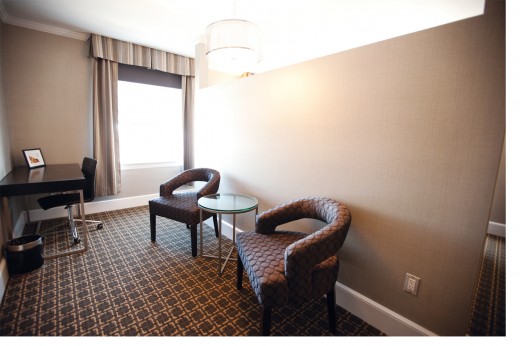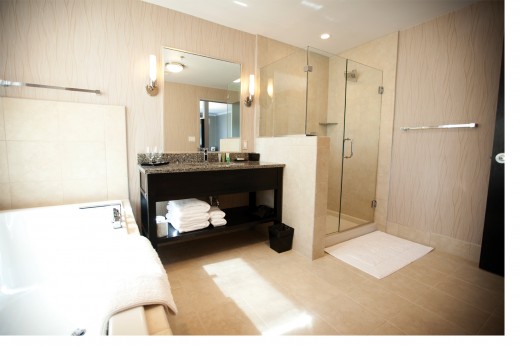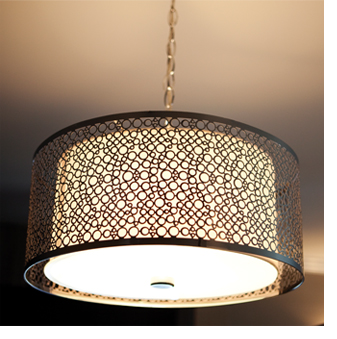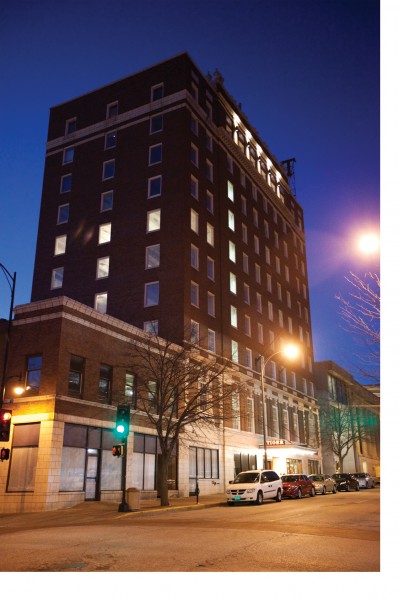Tiger gets a modern twist
 When developer Glynn Laverick bought the historic Tiger Hotel last year, he had a vision of luxury and style. And from the beginning, he knew many of its best comforts wouldn’t cost him a cent. They lie just outside the front door.
When developer Glynn Laverick bought the historic Tiger Hotel last year, he had a vision of luxury and style. And from the beginning, he knew many of its best comforts wouldn’t cost him a cent. They lie just outside the front door.
In the past decade, the city has undergone a renaissance and has evolved into an exciting, eclectic, independent business environment. And the rebirth of the Tiger is the perfect addition to that.
“Downtown Columbia’s energy and charm are amenities unto themselves,” Laverick says. “The relationship [between the hotel and downtown businesses] is mutual benefit. It’s a great boost to downtown store owners, and it’s a boost for the hotel as well.”
Many Columbians have already had a taste of the sort of modern elegance Laverick has in mind. The hotel’s Vault Lounge has been in operation for about a year, serving cocktails and small gourmet entrees and catering special events. A second lounge, V2, opened last fall. With a mix of contemporary style and old-time appeal, the lounges are for grownups, Laverick says. There is no television tuned to sports channels and no blaring music.
 Four-star hotel
Four-star hotel
With $8 million-plus spent on the restoration, the Tiger will operate as a 62-room luxury boutique hotel and the only four-star hotel between Kansas City and St. Louis. The rooms, which are being opened in phases as of the first of March, have been fully restored and brought to life with such high-quality amenities as LCD TVs, Egyptian cotton sheets, spacious bathroom areas, custom wooden furniture and carpeting and Jacuzzis in the deluxe and studio suites.
The hotel’s maple-line lobby and its ornate stained-glass chandeliers and original terrazzo flooring have been preserved. “We’re taking things to the next level — guests will be able to enjoy the historic feeling of the Tiger Hotel, but with a modern twist,” he says. Also on the list: a new bakery, catering services, and valet and room service.
 Spectacular views
Spectacular views
Laverick recognized the Tiger’s investment potential the minute he stepped inside. He had been driving through Columbia and needed a place to stay. He noticed the Tiger and stopped to go inside. With its antique interior and spectacular views, the old building immediately piqued his interest.
“It just didn’t seem right to me that there were these 50,000 square feet of unused space right in the middle of downtown,” Laverick says. “I immediately felt the place was being undermarketed.”
Originally from northeast England, Laverick moved to Columbia about a year ago after living six years in Canada, where he was involved with two restoration projects of an old music hall and theater.
 The Tiger is Laverick’s first full-scale hotel development. He says the project wouldn’t have been possible for him without tax increment financing (TIF), designed to help spur development. While they’re often used in larger cities, the Tiger TIF was the first issued in Columbia. The TIF is available at both the local and state level to help fund development projects by leveraging future taxes (income, sales or property) that the development will create. The municipality or state agrees to forego the increase in its tax payments for a pre-determined amount of time.
The Tiger is Laverick’s first full-scale hotel development. He says the project wouldn’t have been possible for him without tax increment financing (TIF), designed to help spur development. While they’re often used in larger cities, the Tiger TIF was the first issued in Columbia. The TIF is available at both the local and state level to help fund development projects by leveraging future taxes (income, sales or property) that the development will create. The municipality or state agrees to forego the increase in its tax payments for a pre-determined amount of time.
Laverick continues to press forward in his belief that the hotel can again enjoy financial success. By understanding the market and having the right teams in place, he says he is reducing the possibility of financial peril. “Owning avny business is risky; and in this case the developer is certainly at significant risk,” he says. “A project like the Tiger doesn’t come quickly. It’s slow starting off and the investment comes back over a period of 15 to 25 years.”
Laverick also factors in signs of Columbia’s economic stability despite the difficulties of the national recession. With the University of Missouri, IBM and 3M, and the hospital system, the city has a strong employment base — all of which are a boon to the hospitality industry, he says. “No place is recession proof,” he says. “But Columbia has been historically insulated; and there’s lots of potential for growth. People are forward-thinking here; they want to grow.”
 Through time at the tiger
Through time at the tiger
1927 Construction begins on the Tiger Hotel. The beaux-arts-style building was designed by the well-regarded architect Alonzo H. Gentry. He also designed the Harry S. Truman Presidential Library in Independence and the Municipal Auditorium in Kansas City.
1928 The Tiger Hotel opens with a grand party featuring dinner and dancing. The hotel operates for many years, making adjustments for events like the Great Depression and housing a variety of business tenants.
1979 The property is placed on the National Register of Historic Places.
1983-1984 The night club and restaurant City Club and City Lights, respectively, operate a lively dance and dinner destination.
1986-1987 The Tiger is auctioned twice in bankruptcy sales.
1990 The Westin Financial Group purchases the property. The Tiger Keningston opens as a senior living center.
1996 Under new ownership, the name is changed to the Tiger Columns but continued to house senior residents.
2004 The red neon “Tiger” sign that stands on top of the hotel is restored and re-lit after 42 years of darkness.
2005 The ballroom is renamed the Forrest Theatre venue and serves as the headquarters for the True/False Film Festival. It is named after Forrest Rose, a local columnist and well-known musician who died in 2005.
2011 Glynn Laverick purchases the Tiger Hotel to convert the building into a boutique hotel.
Want to stay at the Tiger?
Number of rooms: 15 rooms on the eighth and ninth floors are available April 1. A floor of rooms will be added each month up to a total of 62 rooms.
Cost: Suites range from $149 to $299 a night.
Amenities:
• 24-hour valet service will be available beginning in May.
• A fitness center will open this summer near the main guest registration area.
• Room service will be available in mid-April from the new Oak Room restaurant and raw bar, which will be located at the southeast corner of the Tiger Hotel. The Oak Room will feature handcrafted steak, seafood and pasta entrees and raw, international oysters.
• The Velvet Cupcake, located north of the Tiger entrance, is open 7 a.m. to 7 p.m. weekdays and 7 a.m. to 9 p.m. weekends. The eatery features gourmet cupcakes and other pastries from chef Cale Ivey and Starbucks coffee products.
• The Vault in the basement of the Tiger recently welcomed executive chef Dennis Clay from Les Bourgeois restaurant in Rocheport. Sources say his Reuben sandwich is ridiculously good. Martinis are a specialty during the lounge’s happy hour from 3 to 8 p.m.
• The V2 nightclub is open 9 p.m.–1 a.m. Wednesday through Saturday and features a live DJ and salsa music nights.
• The Tiger’s historic ballroom seats up to 200 guests and is available for all types of special events. For smaller gatherings, the Black and Gold Room seats up to 60 guests.


